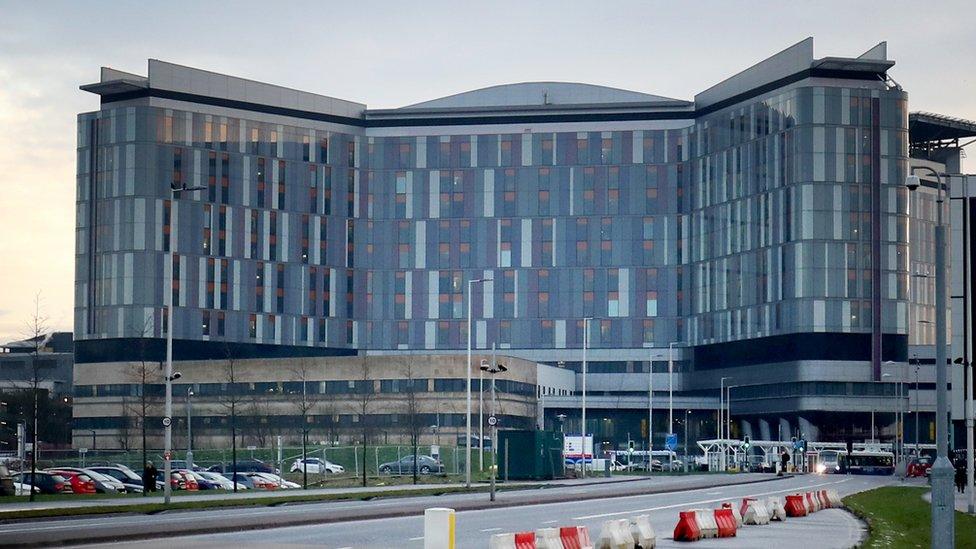Hospitals inquiry: Mother says daughter's death was 'murder'
- Published
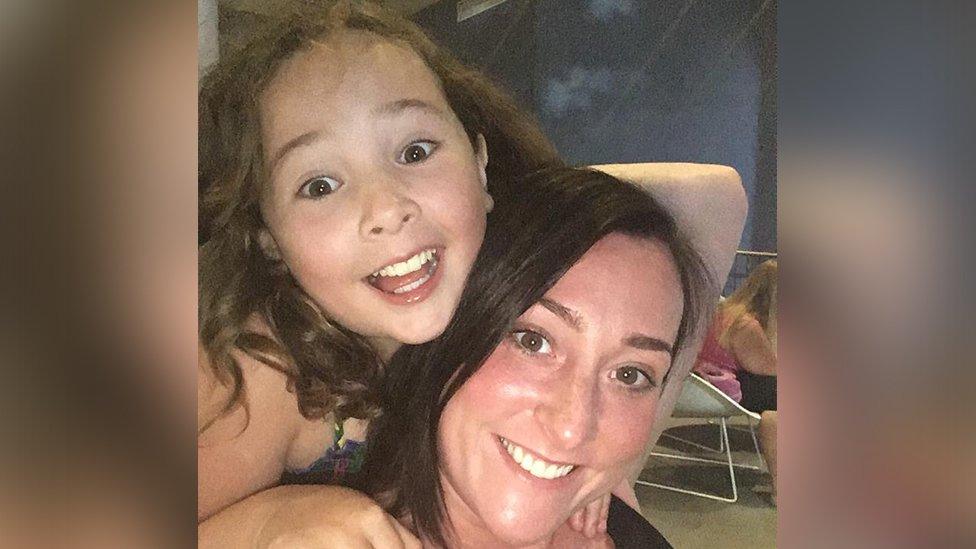
Milly Main died after contracting an infection at the Royal Hospital for Children
A mother whose daughter died at a children's cancer ward after contracting an infection has described her child's death as "murder".
Kimberly Darroch told the Scottish Hospitals Inquiry she wants the Queen Elizabeth University Hospital campus in Glasgow to close.
Her daughter, Milly Main, was 10 when she died at the hospital in 2017.
A review later found an infection which contributed to her death was probably caused by the hospital environment.
The child's death is one of two which has been linked to the QEUH campus.
The inquiry is investigating the construction of the QEUH and Royal Hospital for Children in Glasgow, and the Royal Hospital for Children and Young People in Edinburgh.
On the third day of evidence, a statement from Ms Darroch was read out to the inquiry.
She said she believed NHS Greater Glasgow and Clyde health board should be punished.
"My view is that the hospital should be closed. I don't think it's safe," Ms Darroch said.
"I feel like the health board need to be punished for all of this. In my eyes, what happened to my daughter is murder.
"She should still be here and I am trying to come to terms with that, after coming to terms with losing her initially.
"I don't know that I'll ever be able to. I would never go back to the hospital, never."
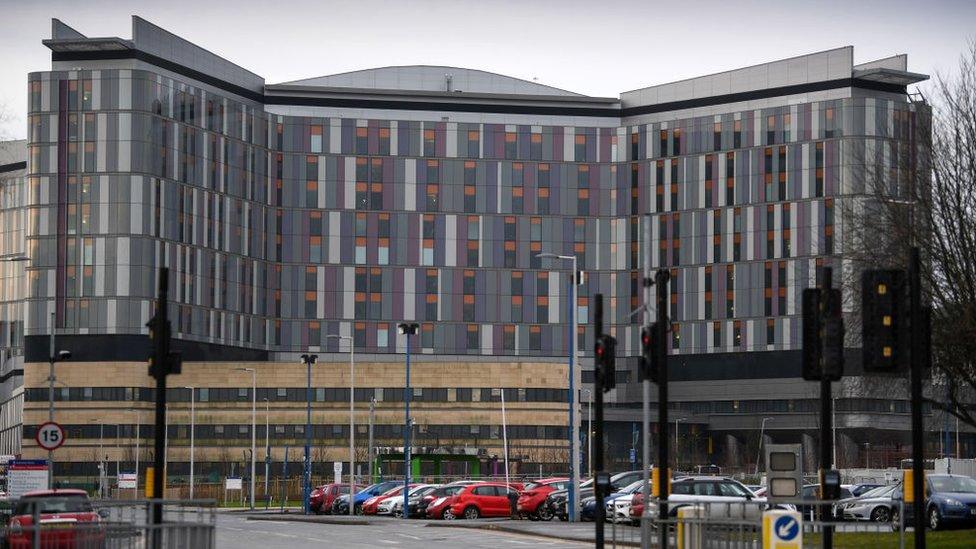
The Queen Elizabeth University Hospital campus in Glasgow opened in 2015
In her statement she claimed staff covered up the true cause of Milly's death and she only found out what happened about two years later in the media.
She also claimed hospital reports about her meeting with doctors to discuss the infection were false.
Milly was diagnosed with acute lymphoblastic leukaemia in 2012, and she died in 2017 after contracting stenotrophomonas - an infection found in water, the inquiry heard.
Ms Darroch and her family claim they were unaware of this infection which contributed to her daughter's death until after she died.
Christine Horne, Ms Darroch's mother, also had her statement read out at the inquiry.
She said: "We were never told what it (the infection) was and there was never any indication that it was related to the water in the hospital.
"Nobody said anything about what had caused the infection."
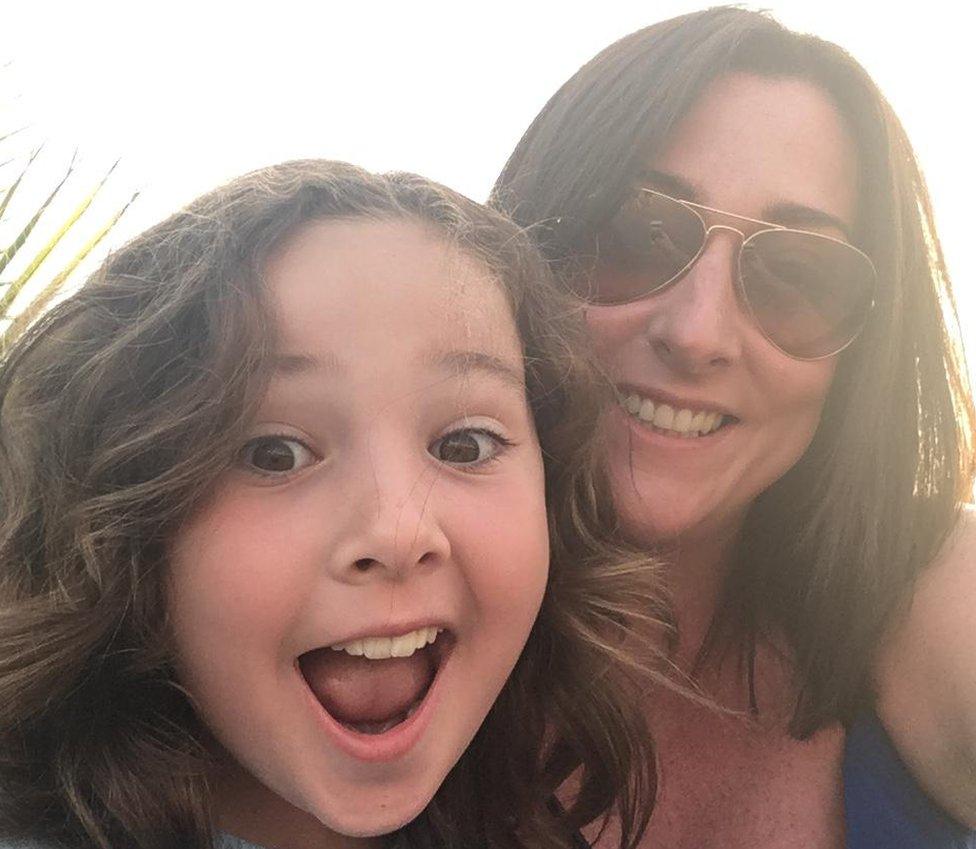
Milly was 10 years old when she died in August 2017
Earlier, Lynn Kearns told the inquiry her son was unable to shower for about two weeks while being treated for a rare disease.
She said this was despite vomiting on his own face during "harrowing" treatment.
Mrs Kearns said she understood the water supply was cut off due to a certain type of bacteria being found in the system.
Her son was 11 when he was diagnosed with a rare and life-threatening blood disorder.
He was treated in the Glasgow children's hospital between December 2017 and March 2018.
Mrs Kearns told the inquiry her son was treated in his room in Ward 2A, where there were issues with running water. Children had to wash and drink using bottled water.
She described the hospital ward as a "prison" with no working entertainment facilities and "horrendous and unhealthy" food.
Mrs Kearns told of a moment on 10 March where staff had to remove a medical tube from her son's throat which resulted in him vomiting and there being no hot water to wash him for days after.
'Harrowing event'
She said: "This was a harrowing event and also left him with vomit on his face. The first thing he wanted to do was have a proper wash or shower and freshen up.
"This was impossible due to the lack of hot water and showering facilities being out of bounds.
"The whole experience was so unpleasant for him. Even months after, he was having panic attacks and flashbacks to his time in hospital."
Mrs Kearns said that after pressing staff for better washing facilities, she was given a basin the size of a dinner plate and some warm water two days after her son had vomited on his face.
She said: "My 11-year-old son, just hitting puberty, had to stand in the bathroom on a towel and I had to use a plastic cup to try and wash him.
"It was a case of me scooping up the water and pouring it over him. He was at the age where changes were happening and he was becoming more conscious about his body, so standing naked while his mum washed him was humiliating for him."
Mrs Kearns said she could not fault staff at the unit, as they too were "kept in the dark" about the water supply issues, but was concerned about ward hygiene levels.
She said: "The staff were great and it was clear that the problems were out of their control."
Problems remain
Despite sharing her concerns with the media at the time, Mrs Kearns said water supply issues at the hospital remained a problem today.
After taking her son into the same hospital on Monday, she said she spoke to two maintenance workers who are still changing filters on the sink taps every two months, the inquiry heard.
Earlier this year, an independent review, external found the deaths of two children at the QEUH campus were at least in part the result of infections linked to the hospital environment.
The review investigated 118 episodes of serious bacterial infection in 84 children and young people who received treatment for blood disease, cancer or related conditions at the Royal Hospital for Children at the campus.
It found a third of these infections were "most likely" to have been linked to the hospital environment.
Two of 22 deaths were "at least in part" the result of their infection, it said.
The inquiry in Edinburgh, chaired by Lord Brodie, continues.
- Published21 September 2021

- Published20 September 2021
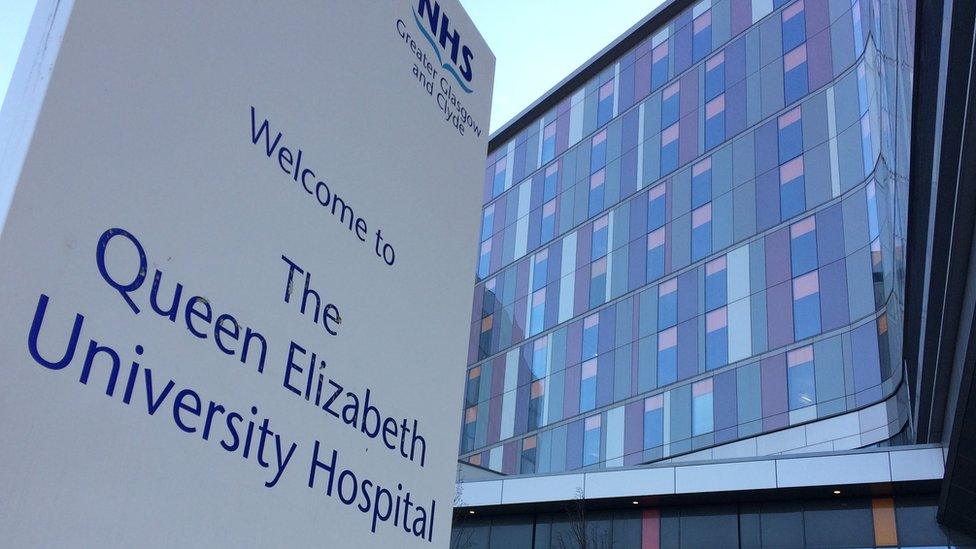
- Published3 May 2021

- Published22 March 2021

- Published15 June 2020

- Published26 August 2020
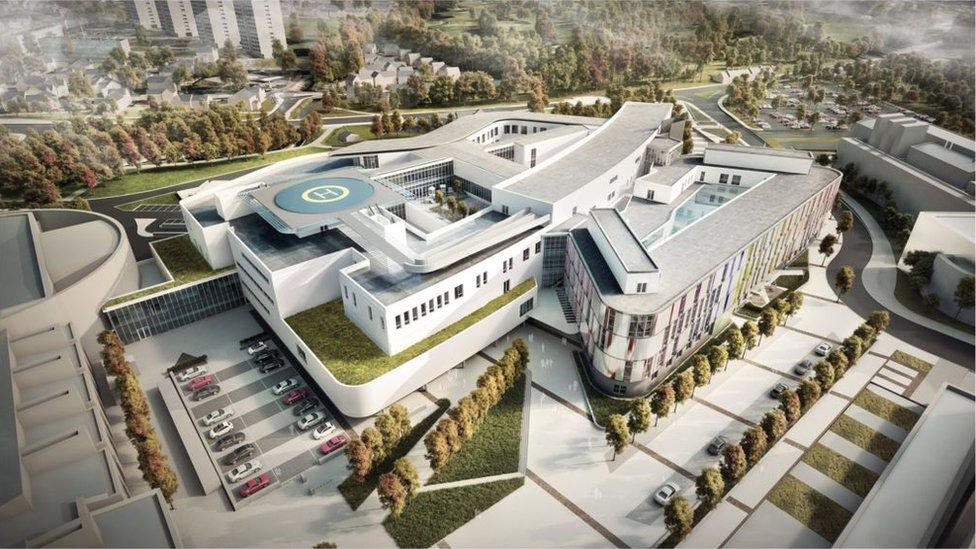
- Published9 May 2022
